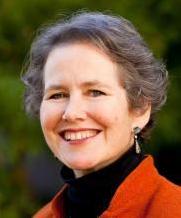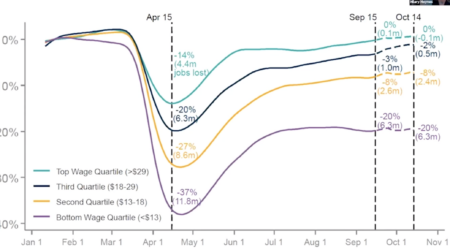Recorded on February 3, 2021, this video features a Matrix Distinguished Lecture by Danielle Allen, James Bryant Conant University Professor at Harvard University and Director of Harvard’s Edmond J. Safra Center for Ethics. The lecture was introduced and moderated by Henry Brady, Dean of the Goldman School of Public Policy and Class of 1941 Monroe Deutsch Professor of Political Science and Public Policy at the University of California, Berkeley.
Professor Allen’s lecture focuses on the findings of Our Common Purpose: Reinventing Democracy for the 21st Century, a report by the American Academy of Arts and Sciences’ Commission on the Practice of Democratic Citizenship. Allen served as co-chair of the Commission, which convened weekly for two years in support of this project. As detailed in the report, the Commission was established to “consider what it means to be a good citizen in the 21st century, and to ask how all of us might obtain the values, knowledge, and skills to become still better citizens…. Through its recommendations, the Commission has looked to increase citizens’ capacity to engage in their communities, counter rising threats to democratic self-government, and rebuild trust in political institutions.”
Allen noted that the messages in the report are particularly urgent in the wake of the the January 6 insurrection at the U.S. Capitol. “I think all over the country and world, people are asking really deep, important questions about American democracy and its viability at this point in time,” Allen said. “Those same kinds of questions are what motivated us in our work on the commission.”
She noted that the American Academy of Arts and Sciences is itself the child of revolution, as it was founded in 1780, in the middle of the American Revolution by John Adams, John Hancock, and others “who thought of themselves as scholar patriots.”
The project emerged from a growing awareness of Americans’ dissatisfaction with the state of our democracy. “In 2017, there were a number of us affiliated with the Academy… who found ourselves expressing these worries to one another,” Allen said. “And we were fortunate that the Academy thought it made sense to pull together a commission to dig into the question of what was happening with the practice of democratic citizenship. What could the future be in the 21st century? Why did we see this rise of disaffection and alienation? And what can we do about it?”
The Commission included stakeholders from across the political spectrum, Allen said. “We gathered a group of about 35 people from different professional sectors, different disciplinary sectors within the Academy, and also across the ideological spectrum,” Allen said. “We were indeed a cross-ideological group, and that was really important to our work. We really wanted to see whether we could find a way of bridging some of the cleavages that separated us as we think about the future of democracy in this country.”
Watch the video of the panel above or on YouTube.


